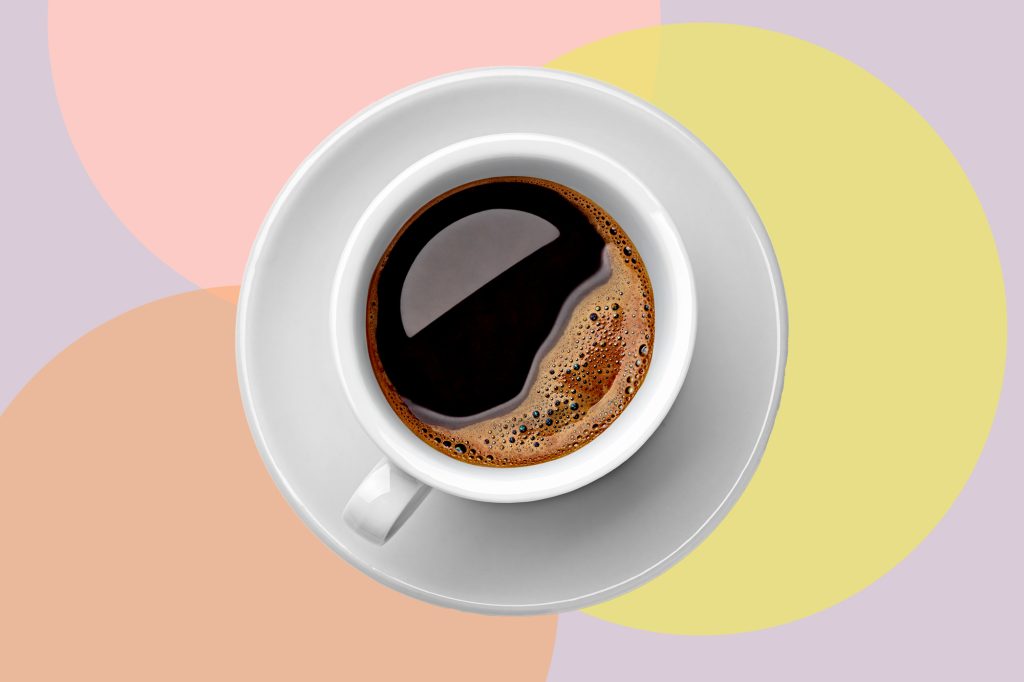Drinking good decaf coffee may reduce its symptoms.
A recent study found that if decaffeinated coffee tastes close enough to the genuine thing, it may be able to lessen the negative effects of caffeine withdrawal.
A cup of premium decaf dramatically lessened the withdrawal symptoms individuals had been feeling 24 hours after their previous cup of caffeinated coffee, according to University of Sydney researchers.

While some participants in the study were not aware that they were drinking decaf, others were. It’s interesting to note that people who knew what they were consuming experienced less withdrawal symptoms.
The study is one of many that outline the frequently unexpected positive outcomes that placebos have in clinical studies.
Coffee and caffeine,
Everyone enjoys coffee. Many people rely on caffeine’s energy boost and believe that caffeine helps them stay focused and attentive. Yet according to research, coffee may have much more to give. Your chances of type 2 diabetes, heart failure, colon cancer, Parkinson’s disease, and Alzheimer’s disease may also be reduced.
The Food and Drug Administration (FDA) advises against exceeding the daily caffeine limit of 400 mg, or roughly four to five cups of coffee. Tea, energy drinks, and sodas all include caffeine as an additive. It is both a food additive and a medication, according to the FDA.
Despite the fact that caffeine is not actually addictive, quitting coffee can cause withdrawal symptoms such as headaches, exhaustion, drowsiness, irritability, melancholy, scattered attention, nausea, and muscle soreness or stiffness.
How much caffeine is in decaf coffee?
Even decaffeinated coffee contains some caffeine. In reality, it contains varied levels of caffeine, typically 3 mg per cup.
According to one study, there were 0–7 mg of caffeine in each 6 ounces (180 mL) cup of decaf coffee. Contrarily, the amount of caffeine in a typical cup of black coffee ranges from 70 to 140 mg, depending on the brand of coffee, how it is brewed, and the size of the cup.
Decaf generally contains extremely little caffeine, even if it does not contain no caffeine at all.
Caffeine withdrawal symptoms
The study did point out that fear of withdrawal symptoms is one of the major barriers, although prior research has shown that only a small percentage of people would actually experience withdrawal symptoms when they stop consuming caffeine.
According to earlier studies, these symptoms include headaches, feeling exhausted, having decreased alertness, drowsiness, and irritability, as well as having a negative mood.
When someone abruptly quits drinking coffee, caffeine withdrawal begins 12 to 24 hours later and peaks one to two days later. According to earlier studies, the effects can be lessened by progressively reducing the caffeine intake.
Reducing caffeine withdrawal symptoms
In the recent study, decaf minimised or improved these symptoms.
Lead researcher Dr. Llew Mills of the University of Sydney tells the University of Sydney News that a convincing cup of decaf has the ability to significantly lessen withdrawal symptoms even when the individual consuming it is ignorant that it is decaf. Yet according to our research, even if they are aware that it is decaf, they still stop withdrawing.
Decaf should be effective, according to Dr. Mills, as long as it “does not taste like decaffeinated coffee.” Major Dickason’s, a brand from the United States, was the brand used in the study. Despite Sydney residents’ well-known reputation as coffee snobs, Dr. Mills claimed that his participants were rather simple to deceive.
61 regular coffee consumers who consumed three or more cups daily for the study gave up their habit for a full day. Participants responded to a questionnaire about withdrawal symptoms after that time period.
The participants were sorted into three groups by the researchers. One group was told they would be sipping decaf, while the other was told they would be drinking coffee. Water was given to the third group, which served as the control. Participants completed the survey once more 45 minutes after finishing their beverage.
The amount of caffeine withdrawal in the group we lied to was significantly reduced, according to Dr. Mills. Surprisingly, however, the group to whom we revealed the truth also reported a decrease in their caffeine withdrawal, albeit a smaller one than the group to which we told a falsehood.
Decaf coffee is loaded with antioxidants and contains nutrients
Contrary to popular belief, coffee is not the devil. In reality, it is the Western diet’s main source of antioxidants. Antioxidants in decaf often equal those in regular coffee, though they may be up to 15% lower.
Most likely, the slight loss of antioxidants that occurred during the decaffeination procedure is what led to this disparity. The hydrocinnamic acids and polyphenols in regular and decaf coffee are the primary antioxidants.
Free radicals are reactive substances that can be neutralised by antioxidants very effectively. This lessens oxidative damage and could aid in the prevention of conditions including type 2 diabetes, cancer, and heart disease. Decaf also includes trace levels of several minerals in addition to the antioxidants.
Cause of effect
According to Dr. Kaptchuk:
“The mechanism of open-label placebo probably includes the body automatically and unconsciously reacting to the embodied ritual of coffee-taking that causes the central nervous system respond with similar reductions of symptoms as if it were taking a real cup of coffee,” according to the study.
This procedure in neuroscience is known as “prediction coding” (also known as “Bayesian Brain”) and is accepted as being crucial for symptom generation, according to Dr. Kaptchuk.
Dr. Kaptchuk made the following observations regarding the symptom decreases for the subjects who were aware they were consuming decaf:
Furthermore, the decaf effect did not entail expectations, supporting long-term clinical research on clinical patients that expectations do not contribute to genuine placebo effects.
REFERENCES:
- https://www.medicalnewstoday.com/articles/caffeine-withdrawal-good-decaf-coffee-reduce-symptoms
- https://www.healthline.com/nutrition/decaf-coffee-good-or-bad
- https://www.foxnews.com/health/coffee-quitters-help-decaf-help-reduce-withdrawal-symptoms
For more deails, kindly visit below.